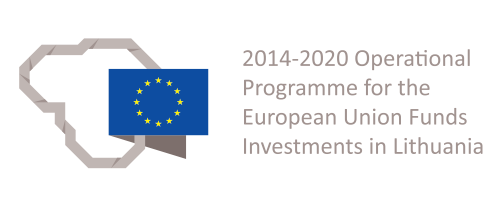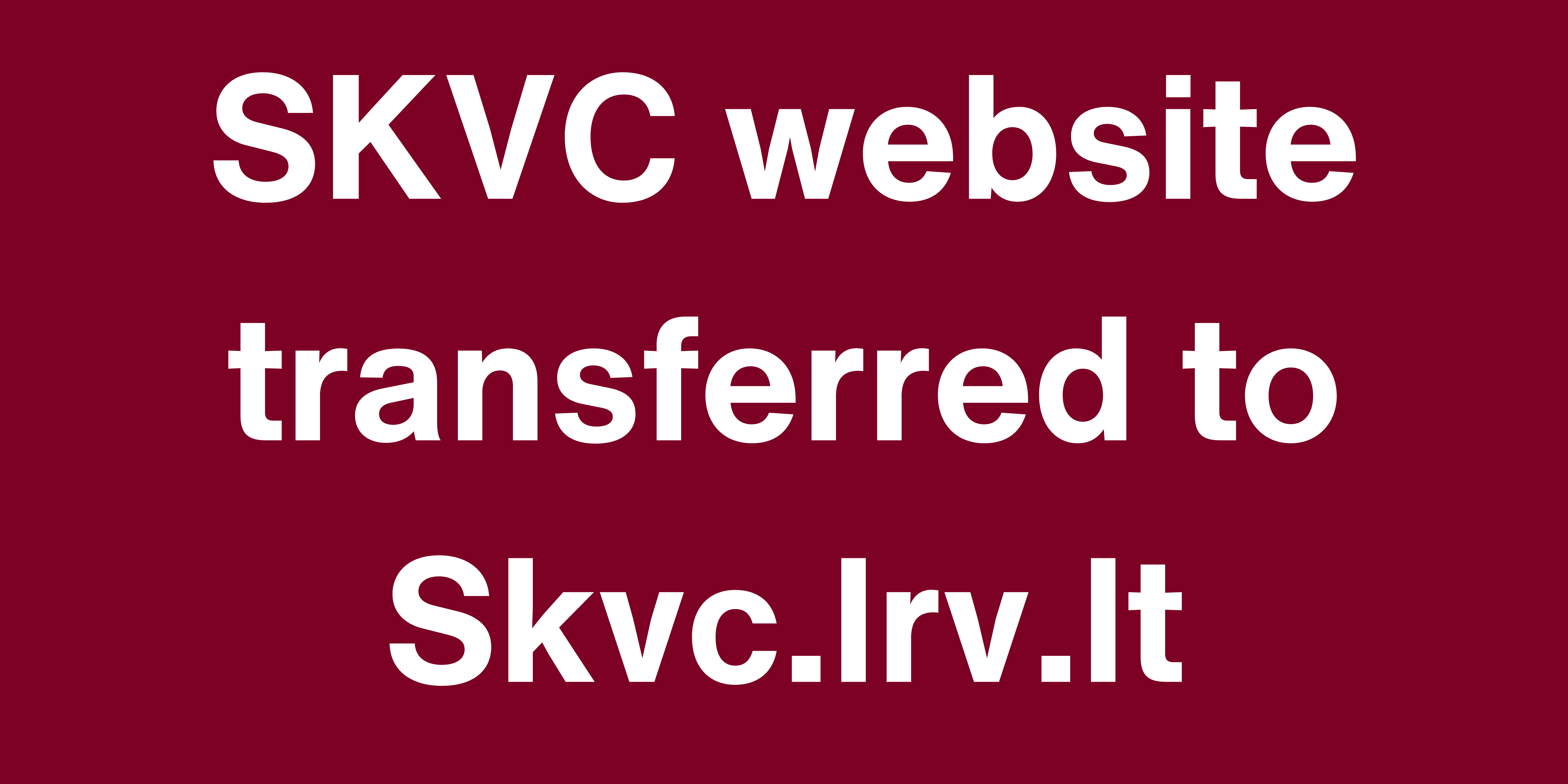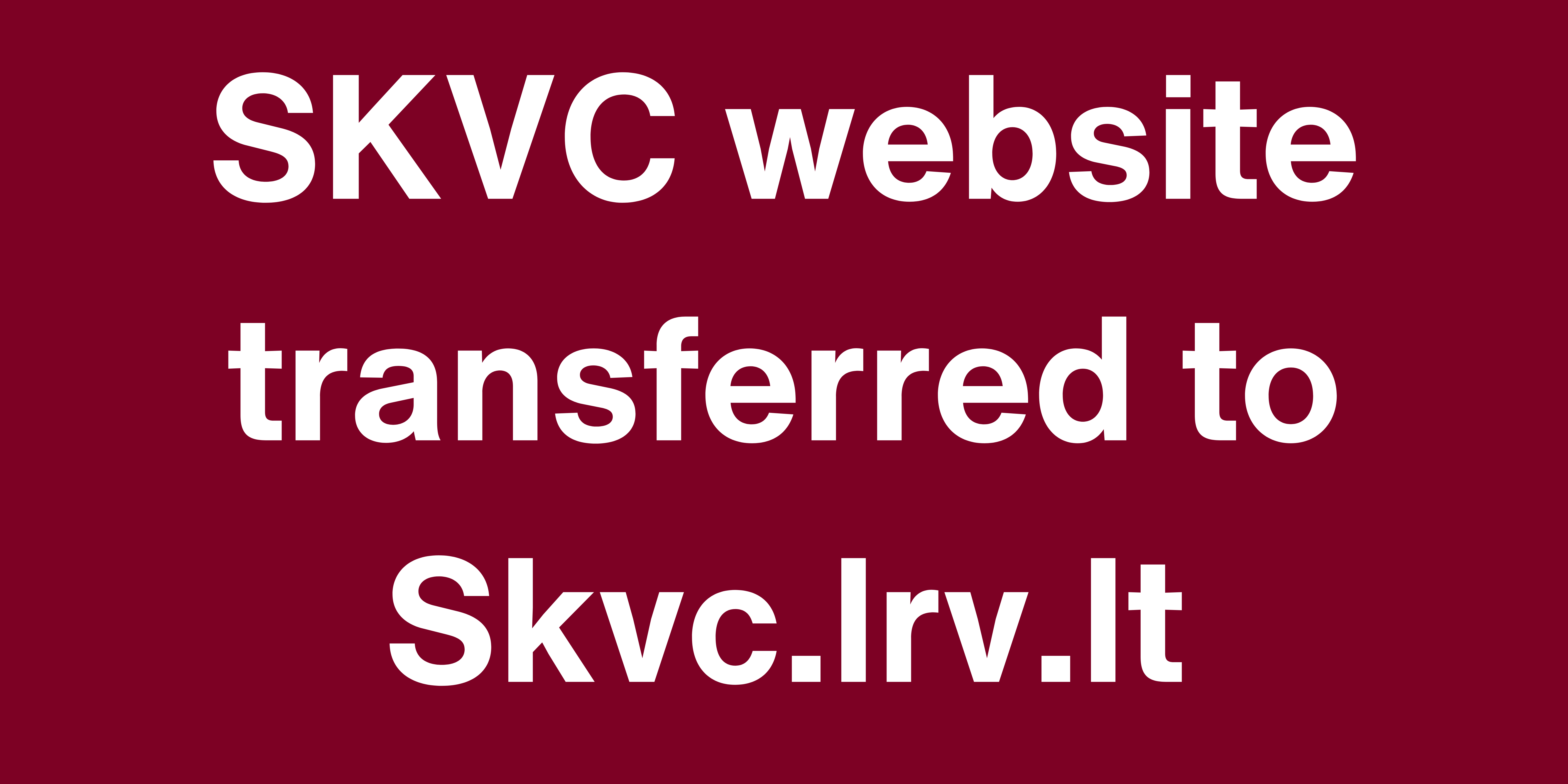- AMIS-3: Development of Higher Education Institutions External Evaluation System, coordinated by SKVC
-
DIGI-AR: Digital Tools for Implementation of Automatic Recognition
-
BRAVO: Bridging a European Network for Recognition of Vocational Qualifications (EQF 4 and 5)
 AMIS-3
AMIS-3
Project aim is to sustain the system of external evaluation of higher education institutions. The implementation of this project will support the quality assurance as well as effectiveness of Lithuanian higher education and research system following the provisions of European Higher Education Area. During the project the mode of evaluation from the individual study programmes to the systematic study field quality evaluation will be shifted.
External assurance has two main functions:
- Accountability of higher education institutions;
- Improvement of higher education quality.
External evaluation results – evaluation reports – provides information regarding activities of the institution and its studies‘ quality not only to the academic community but also to the whole society.
To reach the aim of the project it is necessary to:
- Enhance partnership between Centre and its stakeholders;
- Evaluate quality of higher education institutions’ activities.
Target group of the project: various stakeholders (teachers, students, employers, ministry, society). During the project evaluation of twenty eight higher education institutions‘ quality and external evaluation of study fields will be accomplished.
Project “Development of Higher Education Institutions External Evaluation System (AMIS-3)“ is implemented according to European Union fund investment priority and is financed by European Union structural funds and state budget of the Republic of Lithuania.
The Project runs from 25 March 2015 to 22 April 2024.
For more information:
Aušra Leskauskaitė
Project Manager
Tel. (+370 5) 210 7727
ausra.leskauskaite@skvc.lt
Gerda Černiauskienė
Project Administrator
Tel. (+370 5) 210 4775
gerda.cerniauskiene@skvc.lt
DIGI-AR: Digital Tools for Implementation of Automatic Recognition
 In 2021, a treaty regarding automatic recognition between Baltic and Benelux countries has been developed and agreed upon. This treaty, the first of its kind in Europe, will enable automatic recognition of higher education qualifications between the two regions and an even wider acceptance of qualifications awarded in Belgium, Estonia, Latvia, Lithuania, Luxembourg, and the Netherlands. After coming into force the treaty will be open for accession to other EHEA countries. The project is aimed at supporting the practical implementation of the treaty with developing a robust methodology and a digital platform to ensure the implementation, acceptance and trust in automatic recognition. A sustainable digital platform (a portal) potentially encompassing all parties to the treaty will be created with a standardised information on the automatically recognised qualifications, their comparability, status, and the right of the holders of qualifications. The portal will also provide an opportunity for the holders of the qualifications, employers, higher education institutions, and the general public to print out a self-service comparability statement tailored for specific qualifications. In this way, a one stop shop for implementation of the treaty for present and any future parties will be created. This tool, which builds upon already existing practices within national ENIC/NARIC offices, will provide further transparency on the process of automatic recognition and would enable further integration and acceptance of automatic recognition between the signatory countries. The platform would be compatible with including any other future signatories to this treaty with a potential to cover a wider Europe in a network of automatic recognition.
In 2021, a treaty regarding automatic recognition between Baltic and Benelux countries has been developed and agreed upon. This treaty, the first of its kind in Europe, will enable automatic recognition of higher education qualifications between the two regions and an even wider acceptance of qualifications awarded in Belgium, Estonia, Latvia, Lithuania, Luxembourg, and the Netherlands. After coming into force the treaty will be open for accession to other EHEA countries. The project is aimed at supporting the practical implementation of the treaty with developing a robust methodology and a digital platform to ensure the implementation, acceptance and trust in automatic recognition. A sustainable digital platform (a portal) potentially encompassing all parties to the treaty will be created with a standardised information on the automatically recognised qualifications, their comparability, status, and the right of the holders of qualifications. The portal will also provide an opportunity for the holders of the qualifications, employers, higher education institutions, and the general public to print out a self-service comparability statement tailored for specific qualifications. In this way, a one stop shop for implementation of the treaty for present and any future parties will be created. This tool, which builds upon already existing practices within national ENIC/NARIC offices, will provide further transparency on the process of automatic recognition and would enable further integration and acceptance of automatic recognition between the signatory countries. The platform would be compatible with including any other future signatories to this treaty with a potential to cover a wider Europe in a network of automatic recognition.
Coordinator: Studijų kokybės vertinimo centras (SKVC) – Lithuania
Partners: Akademiskas Informacijas Centrs (AIC) – Latvia; Stichting Nuffic (NUFFIC) – The Netherlands; Ministerium Der Deutschsprachigen Gemeinschaft (MDG) – Belgium; Agentschap Hoger Onderwijs, Volwassenenonderwijs, Kwalificaties En Studietoelagen (AHOVOKS) – Belgium
Implementation period: 2023-2025
DIGI-AR project is co-funded by the Erasmus+ Programme of the European Commission and from national budgets of participating countries.
EQUAL: European Qualification - Refugees and Recognition 4
The EQUAL project – European Qualification – Refugees and Recognition, will build on the experiences from the previous projects – Toolkit, REACT and ARENA, with the continued aim of ensuring implementation of Article VII of the Lisbon Recognition Convention by signatory countries. The project will support NARICs in establishing sustainable recognition procedures that are aligned with national laws and practices for admission. Through locally based needs assessment, structured training and mentoring the project will help build capacity in the bodies responsible for recognition in the new countries recruited to the project – Poland, Lithuania and Romania.
Coordinator: HKDIR (ENIC/NARIC Norway)
Partners: SKVC (ENIC/NARIC Lithuania), DOATAP (ENIC/NARIC Greece), CIMEA (ENIC/NARIC Italy), NUFFIC (ENIC/NARIC the Netherlands), NAWA (ENIC/NARIC Poland), ENIC/NARIC Romania
Third parties: International Hellenic University; University of Brescia; Utrecht University.
Implementation period: 1 February 2023 - 31 January 2025
ONREQ22-24: NARIC Online training course 2022-24

Coordinator: NUFFIC (ENIC/NARIC The Netherlands)
Partners: SKVC, NAWA (ENIC/NARIC Poland)
Implementation period: 2023-2025
AR25: Automatic Recognition in the EEA, 2025

Automatic Recognition in the EEA, 2025 (AR25) aims to support the implementation of the Council Recommendation and achieve automatic recognition by 2025: - Bring institutional recognition procedures in line with LRC principles through promotion of the Spotlight self-assessment tool; - Support (future work on) the recognition of study periods in upper secondary education via mapping national arrangements in recognition and identifying challenges and areas for improvement - Build capacity among higher education institutions on how to evaluate micro-credentials, including on automatic recognition and update STACQ app; - Update the EAR -HEI manual to support streamlining of recognition practices. Target groups are: Higher education institutions, ENIC-NARIC centres, stakeholders in recognition in the EHEA and EEA (quality assurance organisations, rectors conferences etc), stakeholders in mobility in upper secondary education.
Coordinator: NUFFIC (ENIC/NARIC The Netherlands)
Partners: SKVC, BMBWF (ENIC/NARIC Austria), AZVO (ENIC/NARIC Hungary), UFM (ENIC/NARIC Denmark), HARNO (ENIC/NARIC Estonia), FEI (ENIC/NARIC France), QQI (ENIC/NARIC Ireland), CIMEA (ENIC/NARIC Italy), MFHEA (ENIC/ NARIC Malta), NOKUT (ENIC/NARIC Norway), NAWA (ENIC/NARIC Poland), UHR (ENIC/NARIC Sweden), ENIC Ukraine, UK ENIC
Implementation period: 24 months (21 April 2023 – 20 April 2025).
BRAVO: Bridging a European Network for Recognition of Vocational Qualifications (EQF 4 and 5)
 The project aims to extend the role of the NARIC network to a functioning network for recognition of vocational qualifications, in order to facilitate easier mobility of vocational qualifications in Europe, and help to meet the needs of the labor market. There is a large potential for better cooperation on the field of vocational qualifications in the NARIC network. The project will map the network's role in the vocational recognition sector through mapping European policies on vocational recognition, and through a survey mapping existing recognition schemes. In order to achieve best-practice sharing, the project will facilitate best-practice sharing workshops and identify a platform for network cooperation. The final products of the project will be: 1. A sustainable European network for recognition of vocational qualifications 2. A report mapping European policy on vocational recognition and mobility, and relevant recognition schemes in Europe today 3. A report building on topics addressed in best-practice sharing workshops.
The project aims to extend the role of the NARIC network to a functioning network for recognition of vocational qualifications, in order to facilitate easier mobility of vocational qualifications in Europe, and help to meet the needs of the labor market. There is a large potential for better cooperation on the field of vocational qualifications in the NARIC network. The project will map the network's role in the vocational recognition sector through mapping European policies on vocational recognition, and through a survey mapping existing recognition schemes. In order to achieve best-practice sharing, the project will facilitate best-practice sharing workshops and identify a platform for network cooperation. The final products of the project will be: 1. A sustainable European network for recognition of vocational qualifications 2. A report mapping European policy on vocational recognition and mobility, and relevant recognition schemes in Europe today 3. A report building on topics addressed in best-practice sharing workshops.
Link to BRAVO website here
Coordinator: HK-dir (ENIC/NARIC Norway)
Partners: SKVC, UHR (ENIC/NARIC Sweden)
Implementation period: 1 January 2023 – 31 December 2024.




